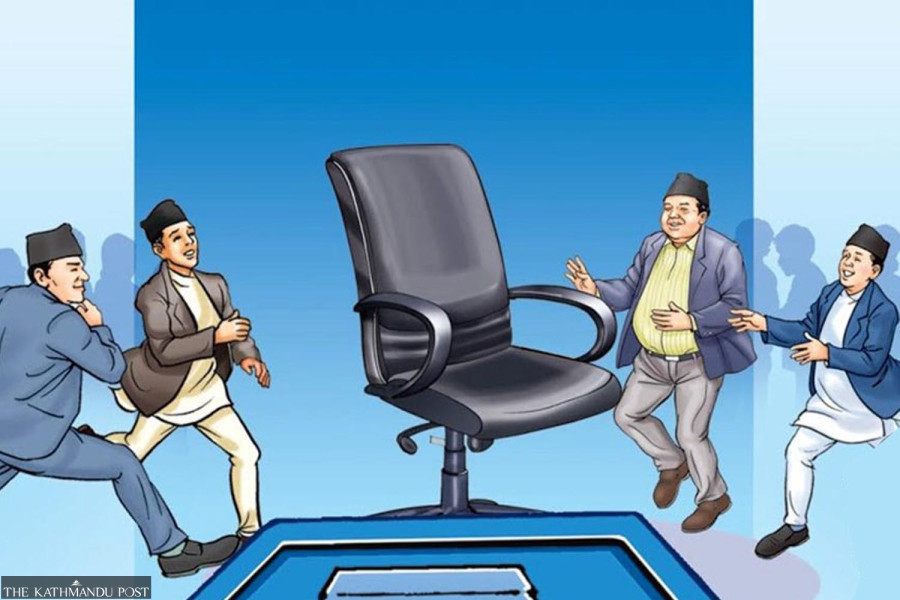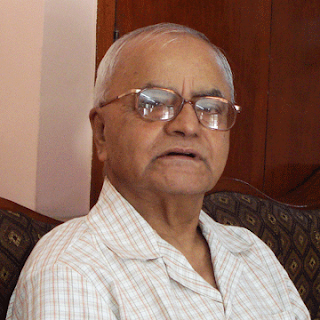Columns
Absurdities of political parties
Nepali leaders take pride in becoming prime ministers often, leaving behind no imprints of their governments.
Lok Raj Baral
Nepali politics is full of absurdities. If governmental stability is boring and nauseating, instability is a pastime for politicians. The more we observe Nepali politics, the more it looks like a pantomime or what we call nautanki. All such manoeuvrings and manipulations, aided and abetted by high-sounding rhetoric of stability and progress, are, in fact, leading the country nowhere. Politics is becoming uglier each day, resulting in stagnation and uncertainty. Moreover, the political parties’ leaders do not hesitate to call such grotesque doings democratic exercises. The latest event is the sudden change of alliances between the CPN (UML) and the Maoist Centre. Now, KP Sharma Oli has joined hands with the Nepali Congress’s (NC) Deuba to exchange the post of prime minister at intervals.
The 10-year Maoist insurgency in Nepal ultimately landed in a hostile environment the Maoist Party had always denounced as inappropriate for the country. For the Maoists, the violent revolution à la Maoist variant was the apotheosis of transformation and progress. In its wake, the 2005-06 revolution paid rich dividends to the Maoist leaders by catapulting them into the high stage of Nepali politics, making them the first party in the first Constituent Assembly elections held in 2008 and enabling them to head the government.
However, its first stint in government was short-lived when it miscalculated and overstretched its strength. The haste with which it tried to grab power by entering the domain of the Nepal Army turned out to be counterproductive. Here, the president’s constitutional role was extended to refusing the recommendation of the prime minister to fire the chief of the army staff, resulting in the ouster of the prime minister in less than 10 months. Any politician who forgets the surface of political reality is destined to fall, and it happened to comrade Pushpa Kamal Dahal, whose long schooling in Maoist ideology and practices of war didn’t work in the most inhospitable context of Nepali politics and society.
Moreover, Leninism and Maoism espoused by the communist parties—Leninism for the CPN (UML) and Maoism for the Maoist Centre—are neither tenable nor practicable, as the revolution launched by the latter landed in a compromise with its own ‘class enemies’ and ‘reactionaries’. It was indeed a U-turn for Dahal and his colleagues. The CPN (UML) metamorphosed when it suddenly changed its chrysalis into a multiparty system in 1990. Originating from the Jhapa violent movement that adopted Marxist-Leninist Maoist ideology, it eventually joined the restoration of the multiparty movement launched under the stewardship of the NC and subsequently became a systemic party.
Now, all the parties subscribe to the multiparty system, albeit with various banners and rhetoric. Still, in substance, they are co-sharers of power and privileges with the much-denounced NC. Originating and evolving as the first liberal party, the NC has the credentials of being a believer in liberal democracy, notwithstanding the deficiencies of this ideology. Now, the NC, like others, is also in the quagmire of dirty politics, indulging in making and breaking alliances forged as a result of the fractured electoral mandate handed down to them.
Yet, despite heavy odds encountered by the parties in the past, all of them (including the NC) have a tendency to disfigure the beautiful edifice of republican order. Although their perseverance and dedication to presenting a constitution prepared by the CA was/is commendable, the manner in which they are bent on destroying the spirit of the republic is equally despicable. All their activities are carried out in the name of stability and progress, under the subterfuge of regression and backlash.
The democracy we have adopted did not develop by fits and starts as it did in Britain and the Netherlands. These two countries have been able to sustain democracy without giving rise to occasional upheavals that upset democratic stability. Unlike them, France’s top-down approach didn’t allow democracy to strike roots or provide stability. Thus, Britain remains an exception to many other aspirants to democracy.
What went wrong with Nepal’s democratic experience? The answers are many and wide-ranging. First, the ideological moorings and orientations of political parties are spurious. Since many come from opposite ideological orientations and actions, it has taken a long time for them to internalise political culture. Even the NC, the so-called grand old party of liberal democracy, has derailed the system by making unholy alliances to remain in power.
Although no party can become a purist in today’s political churnings, the NC could have become a role model in laying the foundation of democracy. But its leaders are as self-seeking as others. In the post-1990 multiparty era and under the present Republican dispensation, the NC has failed to show its distinct identity, rather indulging in self-aggrandisement and misgovernance. Changes of governments under any pretext and parroting the rhetoric of democratic credibility would not suffice in the uncanny political context.
The second is the crisis of leadership. Most parties’ leaders have been tested by people who perceive them as lacking vision, commitment and determination to advance the agendas of progress. The same leaders who have forfeited public trust are lured by the posts and power. They have allowed the system to rot by indulging in pastime politics, rendering the people silent spectators. Leaders are generally neither transformatory nor honest while discharging their duties in government and opposition. Since leadership is a crucial variable in the early phase of political evolution and change in all dimensions, Nepali leaders even fail to be transactional. They take pride in becoming prime ministers many times without leaving behind the imprints of their governance.
Third, the absurdity is begotten by the failures to put institutions on track, as many institutions created by the constitution or others outside it are spoiled by excessive politicisation in the respective parties’ lines. So, institutions are virtually lifeless and hardly generate the popular faith in leadership with which the system needs to revolve. Finally, experiences over the years have shown that opportunistic politics do not allow coalition governments to last for a fixed term because Nepali parties are not made for coalition politics.




 11.12°C Kathmandu
11.12°C Kathmandu















